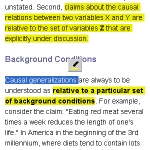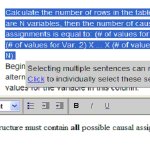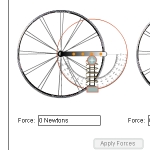|
Here are a few of the projects on which I have worked. These include design studies, experimental evaluations, and usability studies. Note-Taking InterfacesMy doctoral research involved the design, development, and evaluation of online note-taking interfaces to promote positive learning behaviors. The following are my two most recently completed projects, and include iterative design studies and experimental evaluation.
Usability StudiesI have conducted usability evaluations and redesigns both for the Open Learning Initiative at Carnegie Mellon, and when I was working in Industry.
Future MiscellaneousI have done a variety of additional work using relevant techniques, and will put up descriptions as time permits. For now, permit me sentence-long descriptions of two of them. As a Knowledge Engineer at Digital Jones, I used field observations and structured interviews with experienced consumer electronics salesmen to create expert-system based shopping advisors. As part of a class project published at the Human Factors conference my colleagues and I studied social networks in a military command and control organization. |
Mixed Methods
I favor decisions based on multiple lines of inquiry. For this reason much of my work combines methods, such as questionnaires, observation, and interviews. These methods can provide complementary data.
Central Techniques
Think-Aloud
Heuristic Evaluation
Semi-Structured Interviews
Questionnaires
Experimental Evaluation
Iteration
You rarely get it right on the first try. Getting user data early is the best way of avoiding ratholes. Part of my doctoral studies involved developing an iterative design process for rapidly gathering user data on multiple interface solutions.
|



